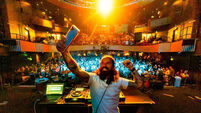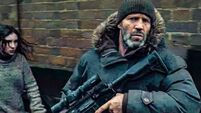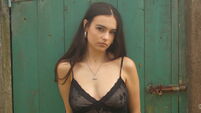From Oblivion to Cyprus Avenue: Four emerging Cork bands take centre stage for RTÉ radio and streaming
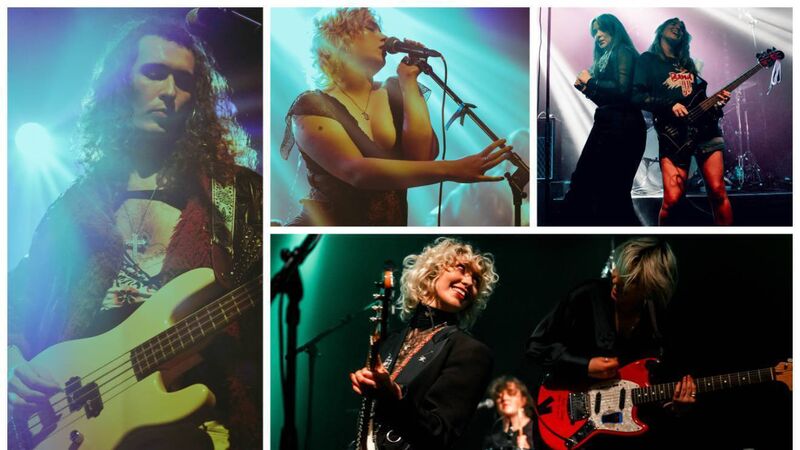
Clockwise from left: The Love Buzz, Cliffords, Iris and I Dreamed I Dream were the four young Cork bands being filmed for RTÉ's Sessions from Oblivion at Cyprus Avenue on Monday night. Pics: Erin Plaice.
“It's so nice to have so many of our friends around us during this experience - like, we're friends with every band here. We still find interviews really awkward, musicians, really, at the end of the day, are just nerds... just music nerds,” laughs Cliffords vocalist Iona Lynch, in the green room at Cyprus Avenue, just after the band comes offstage from a raucously-received performance.
We’ve done a lot of cheerleading in these very pages about Cork’s music scene and the people involved over the years - the singers, musicians, producers, DJs, visual artists, promoters, gig-goers, archivists, record shops and radio heads, that all form the component parts of any music scene like our own - all invested with an uncommon passion for their crafts, and the freedom conferred on them by doing so in a place stuck somewhere between ‘cool second city’, ‘historic port town’ and ‘primordial marshlands’.
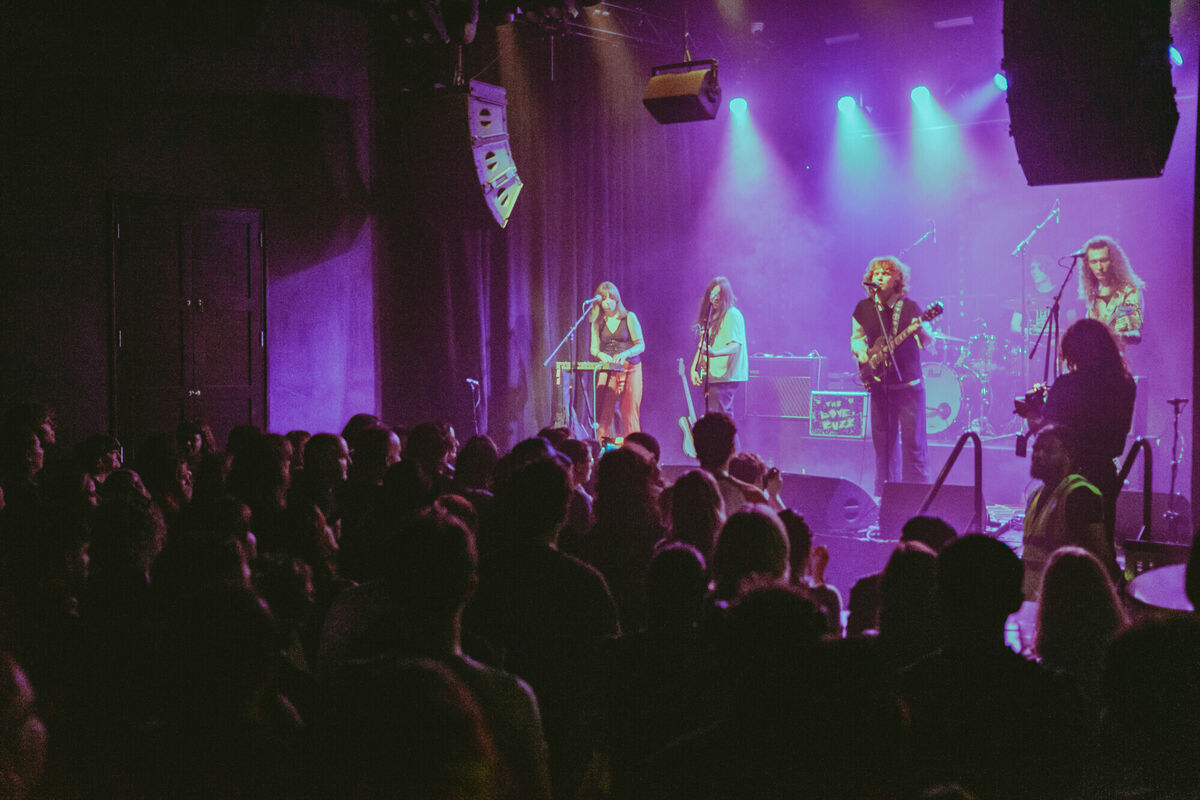
But when you see a packed-out room on a Monday night, with hundreds of gig-goers and revellers out to support four exciting, enthusiastic and energetic young bands, as they perform live in a special recording for our state broadcaster, it’s hard not to be overcome with a sense of pride, in these young people, in this place, in this moment.
Earlier this week, producers, engineers and camera crew from , an online show airing across RTÉ’s radio and online visual platforms, descended on Cyprus Avenue for a day of recording for its upcoming next series, shining a spotlight on ‘bitchwave no-punks’ I Dreamed I Dream, pop-psychers The Love Buzz, indie-pop heart-breakers Cliffords, and young pop-rockers Iris.
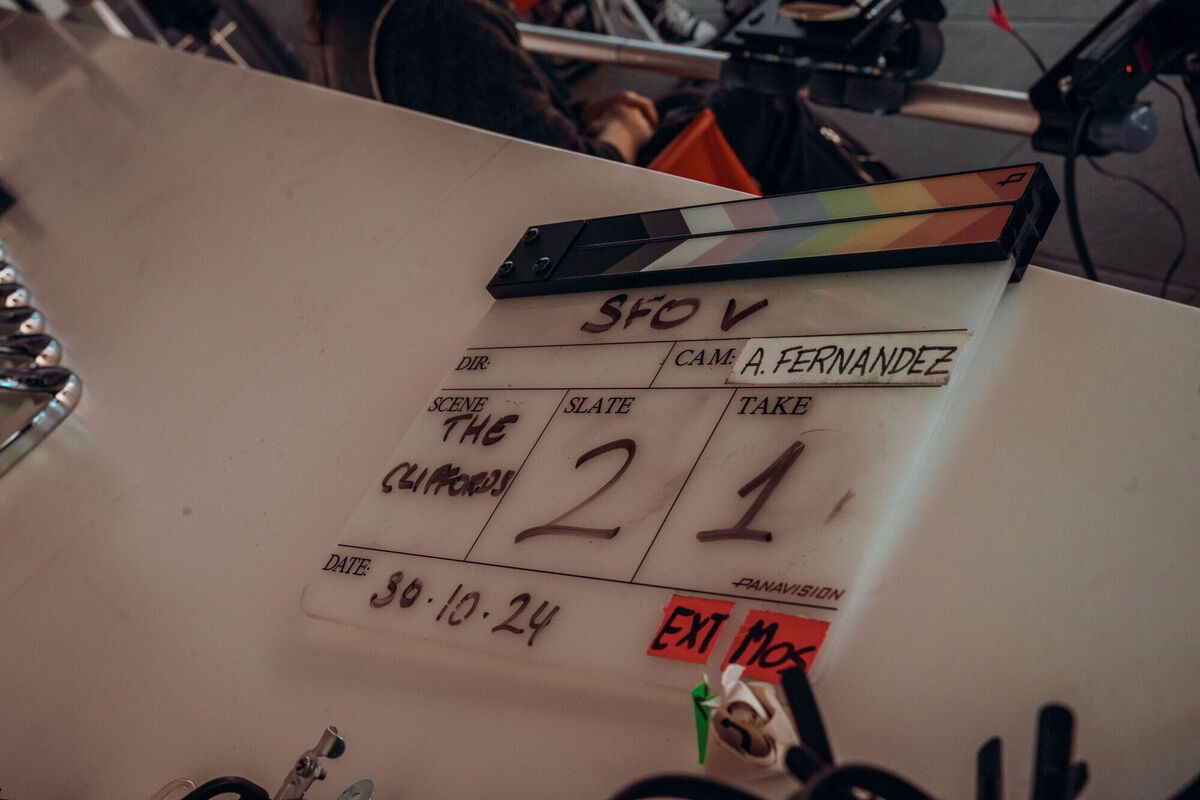
In the afternoon, a four-person crew headed up by producer Lesley Kane (formerly of eighties Dublin band Echoes of Pink Whispers) films interviews between the artists and presenter Andrew Bass, himself a former musicians; while by night, the bands perform current and new material among a professionally lit, multi-camera setup, in front of a live audience - the latter being a new addition for the show, after its beginnings as a pandemic-era project, airing across RTÉ 2XM and RTÉ’s culture website.
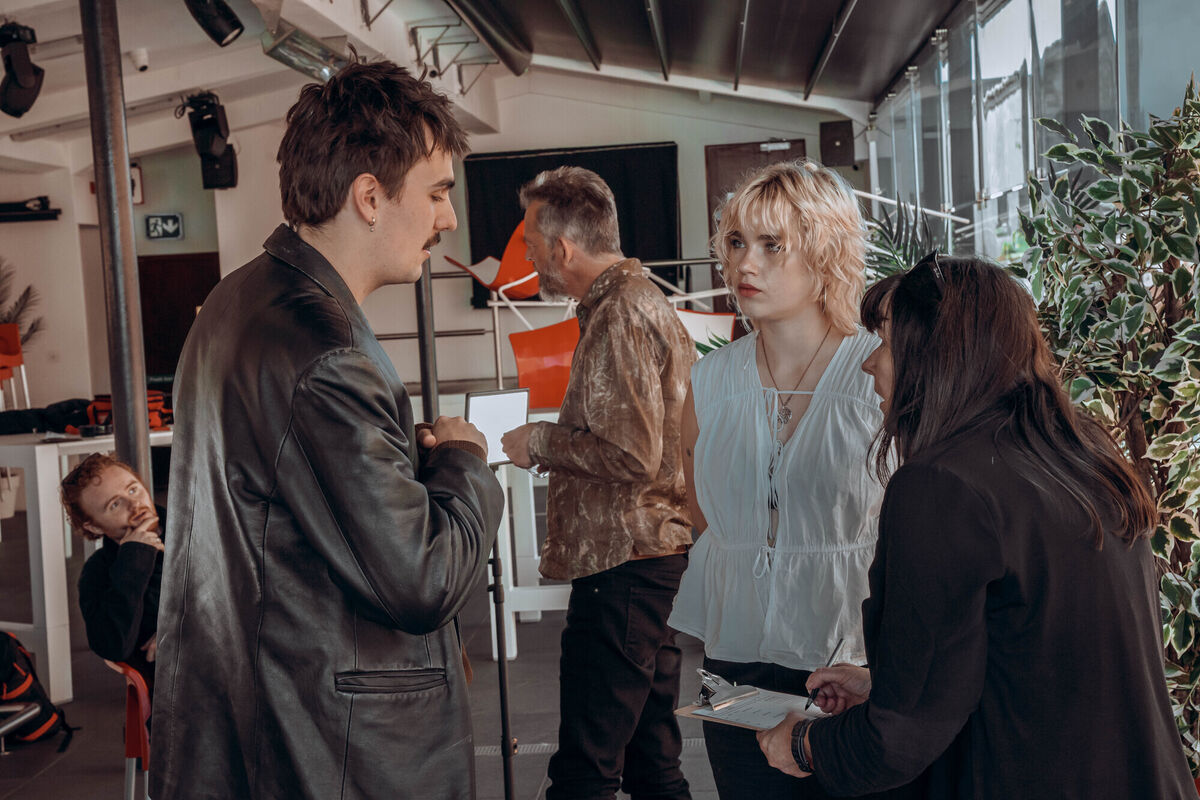
“My studio is called Oblivion, a little project studio in Dunboyne, Co Meath. We're all in lockdown, all on PUP at the time, and we didn't know when it was going to end,” says Bass. “I thought, 'we have a couple of DSLR cameras, and we have microphones and bits and bobs, yeah, maybe we could do something for the bands, film them, talk to them. The original idea was I wanted to bring bands to pubs. I wanted the listener, or the viewer, to feel like they were having a pint with the band, and make it more edgy and a bit more real.”
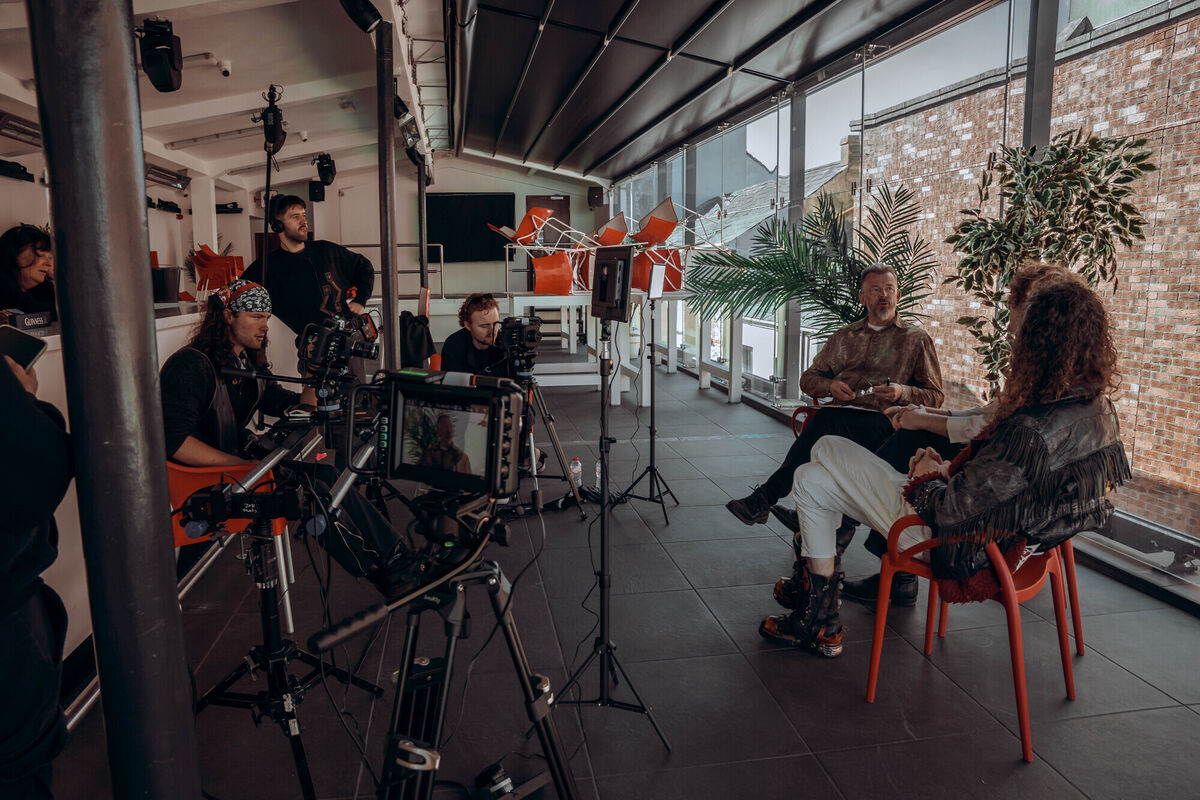
After a run of pilot episodes, social distancing and other public health measures became a mounting consideration, but a chain of events and community contributions led to the project coming to life. “[Former 2FM producer and Irish industry legend] Ian Wilson had appeared on one of the pilots, and I said to him, ‘I don't know anything about broadcast, you do’. And he said, ‘oh, you need a producer, happily, I am one.’ I said, ‘well, Mr. Wilson, I don't think we can afford you’. He said, ‘there is no charge’.
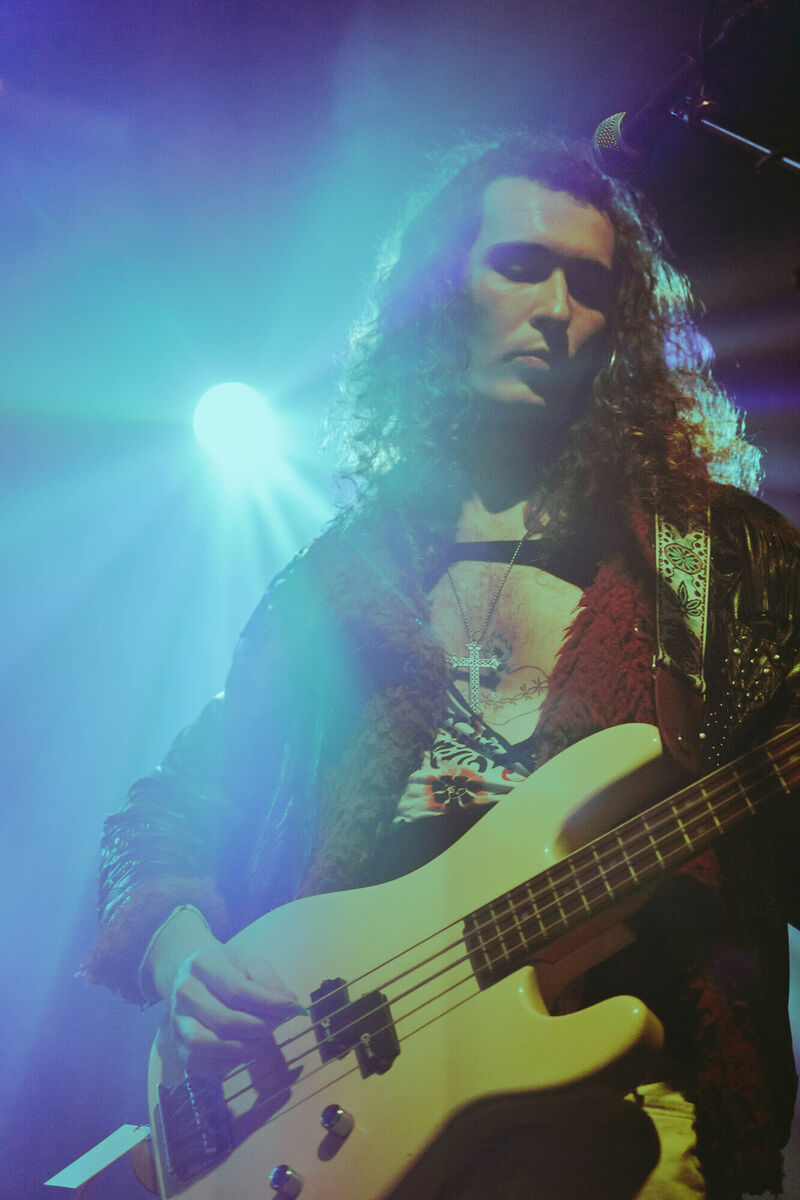
“Social distancing came in, and our studio is too small to have musicians two metres apart. We went to the local hotel, Dunboyne Castle, and I met with Liz, who runs it, and she showed me her brilliant nightclub downstairs. It wasn't being used. It's perfect for us. And I said, ‘this is too expensive’. No charge. Then I went to Willie Ryan, the music lawyer, and I said, ‘I am told by Mr. Wilson, we need contracts, we need release forms and all the legalities taken care of’. He said, ‘I will do all that for you, no problem’. I said, ‘Mr Ryan, will you go kindly upon me when you're making your invoice?’ No charge.”
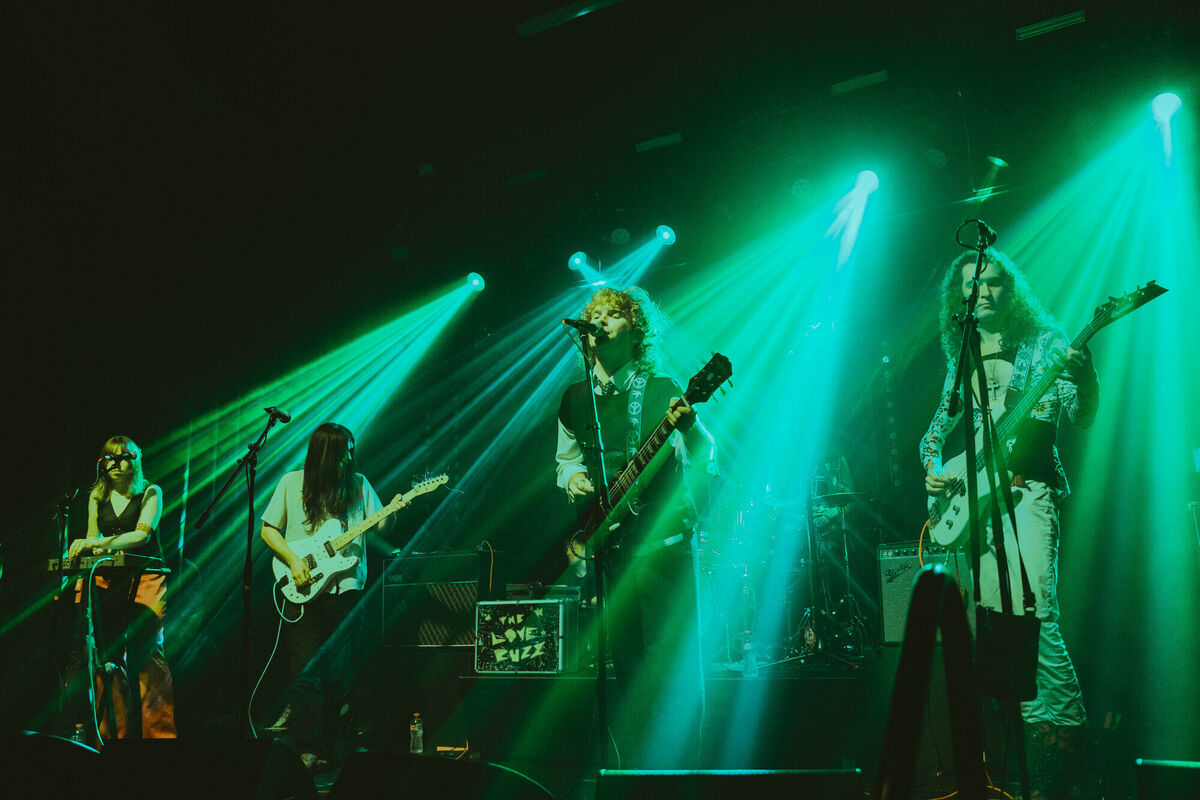
Combining live performances and interviews with Ireland’s best upcoming bands, with sage advice from a wide variety of music industry and community veterans, it’s earned a post-Covid niche in the national broadcasting house’s cultural offering, and full funding from Comisiún na Meán among others - but with a new series underway, and the limits of the pandemic-era ‘empty room’ format being reached, it was time for to extend its reach to the live sphere.
“We have gone through a very finite and defined process, whereby ‘this band is coming in to do this song’, and we can get hush, silence, whenever we want,” says Kane. “It's a completely different thing in a live scenario. We're now saying, do a 25-minute set, then Ian comes to me and goes, that one, this one. You're on your toes all the time, and the audience interaction is a huge part of it. To see the love that people have, for Irish musicians, is heart-lifting, and it does, it makes a difference. But the challenges are practical challenges - you must keep focused, keep eye contact with the producer, keep eye contact with the camera... these things.”
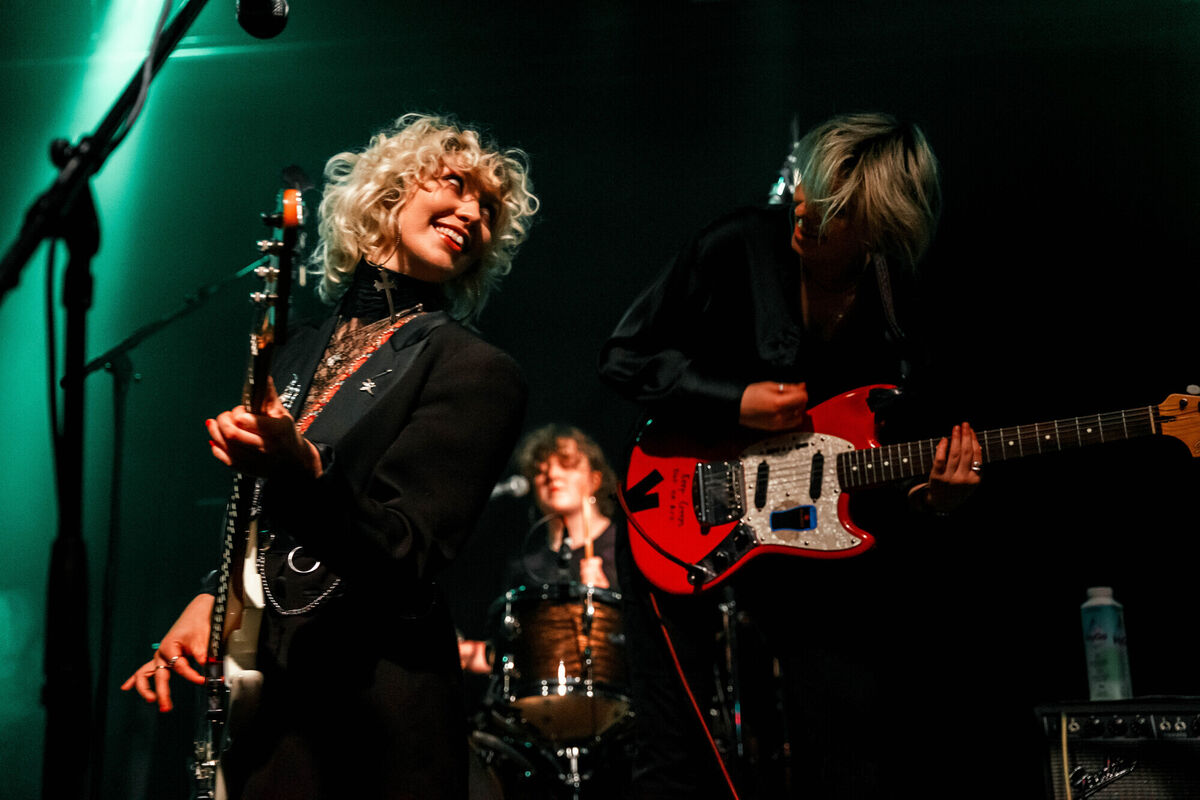
Wilson’s career speaks for itself - from sitting at Dave Fanning’s right hand during the legendary broadcaster’s groundbreaking run on late-night 2FM, to spearheading fondly-remembered initiatives like the Cork Rock showcases at Sir Henry’s. He continues to vocally champion new and experimental Irish music, whenever the opportunity arises, and that combination of experience and forward thinking has been a big factor in the show’s continued evolution.
“Once we got the production values up to a certain level, we then started introducing different elements like spoken word, Irish language... Now we're obliged to have at least 50% female performers, which we do in spades on the programme. We're not at the forefront of that extraordinary change, but we're certainly representing it.
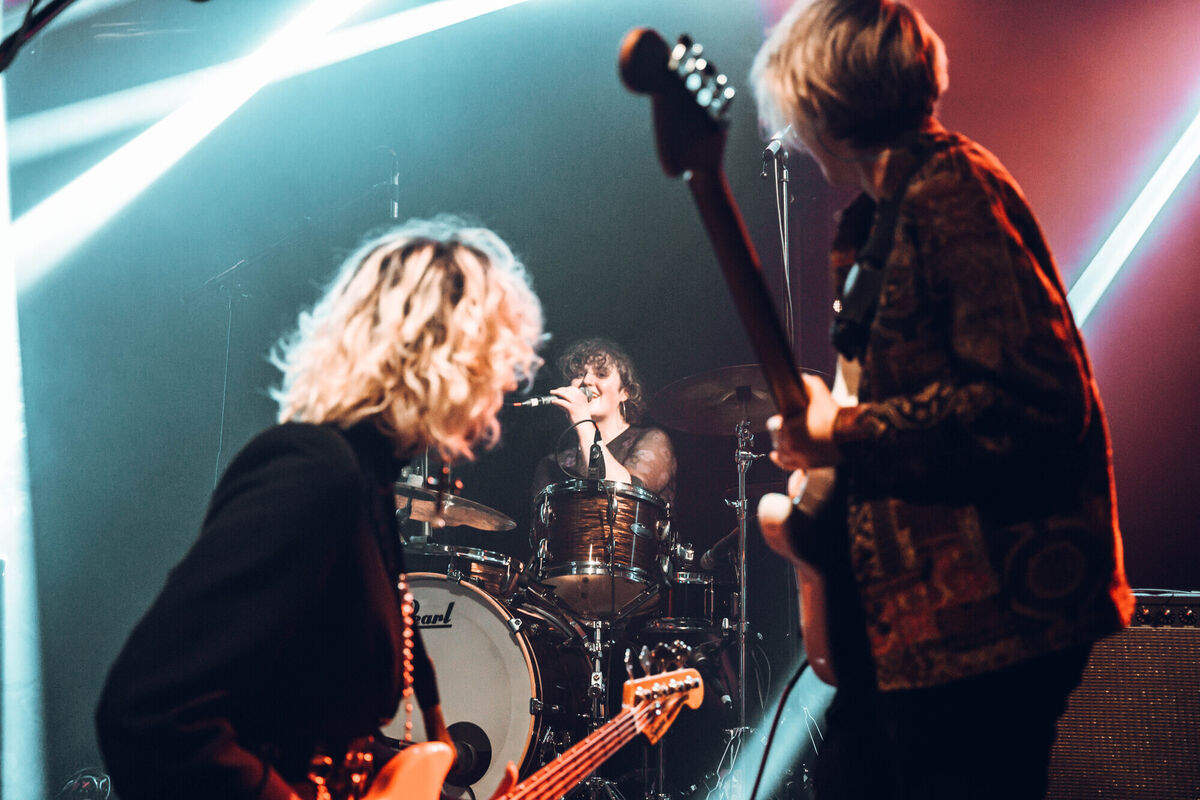
“The next step, obviously, was to go out now and get in front of an audience, and do live music, live, which is what we've done. We've done two shows in Dublin - one very urban, one very guitar-y. And we said, obviously, just look down the list, we went, 'Cork'. Established venue, good live music audience, great current crop of bands. No-brainer, y'know. So, off we went.
“And I know from experience, of Cork Rock and that, that if you can get everybody on side in Cork, they really rally around. I mean, you can get absolutely rejected, and so what? But I know that if they're up for it, they're really up for it.”
“He was talking to us about his work in Sir Henry's, how he did gigs there, he knew it really intimately,” says Iris vocalist and guitarist Laoise O’Brien. “Our context of Sir Henry's is, like, the past, through our parents, or references in songs, or media, so it hasn't been tangible - it's been so interesting seeing his span of a career, for sure.”
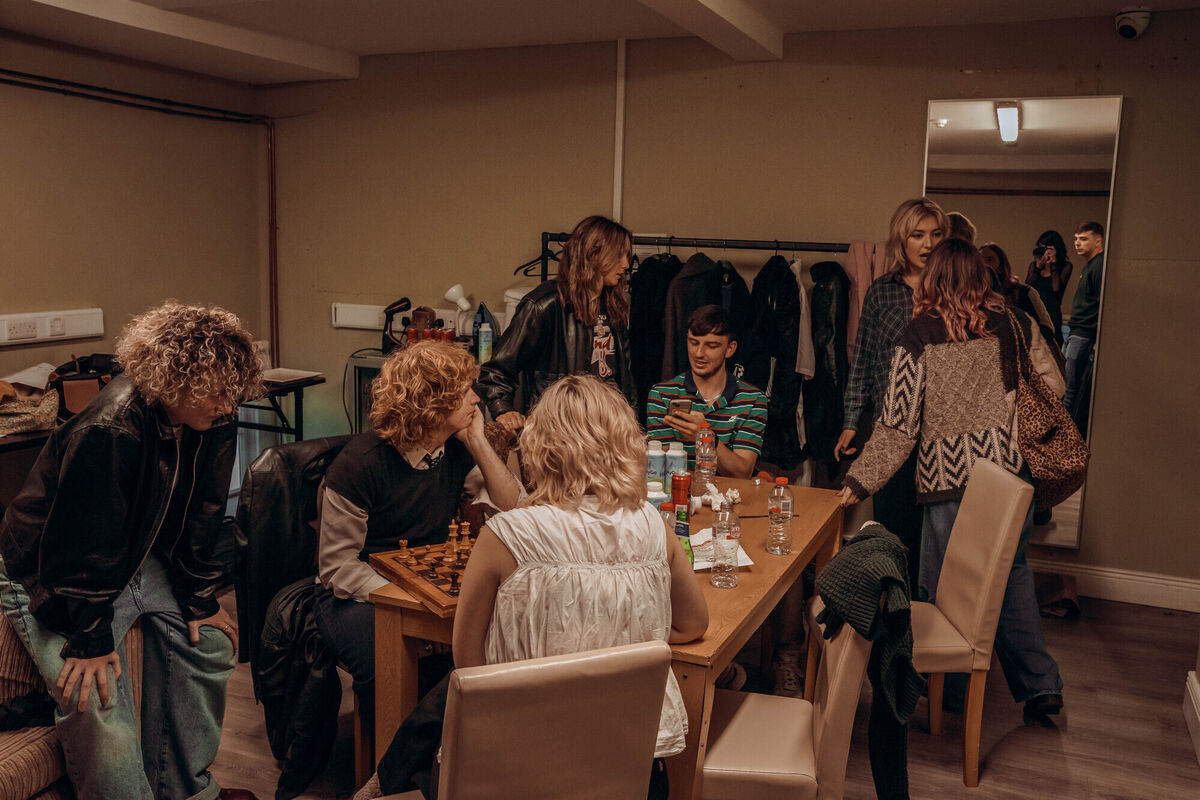
On the day itself, the pre-show feels like a big communal gathering, the bands grabbing food and drink together, and messing around as early interviews and pre-production take their course. On the night, not quite the typical gig, and not quite the typical visual session, the energy and circumstance of the occasion carries the bands along.
“Yeah, it's certainly been a long, weird, new, fun day, with recording and interviews,” remarks Iris vocalist and guitarist Lucey Moriarty at the end of the night. “It's really nice as well, like, we knew the lineup quite well. We're all pals, so there was definitely a sense of comfort about that as well. We spent the whole day together, really, so we all felt comfortable.”
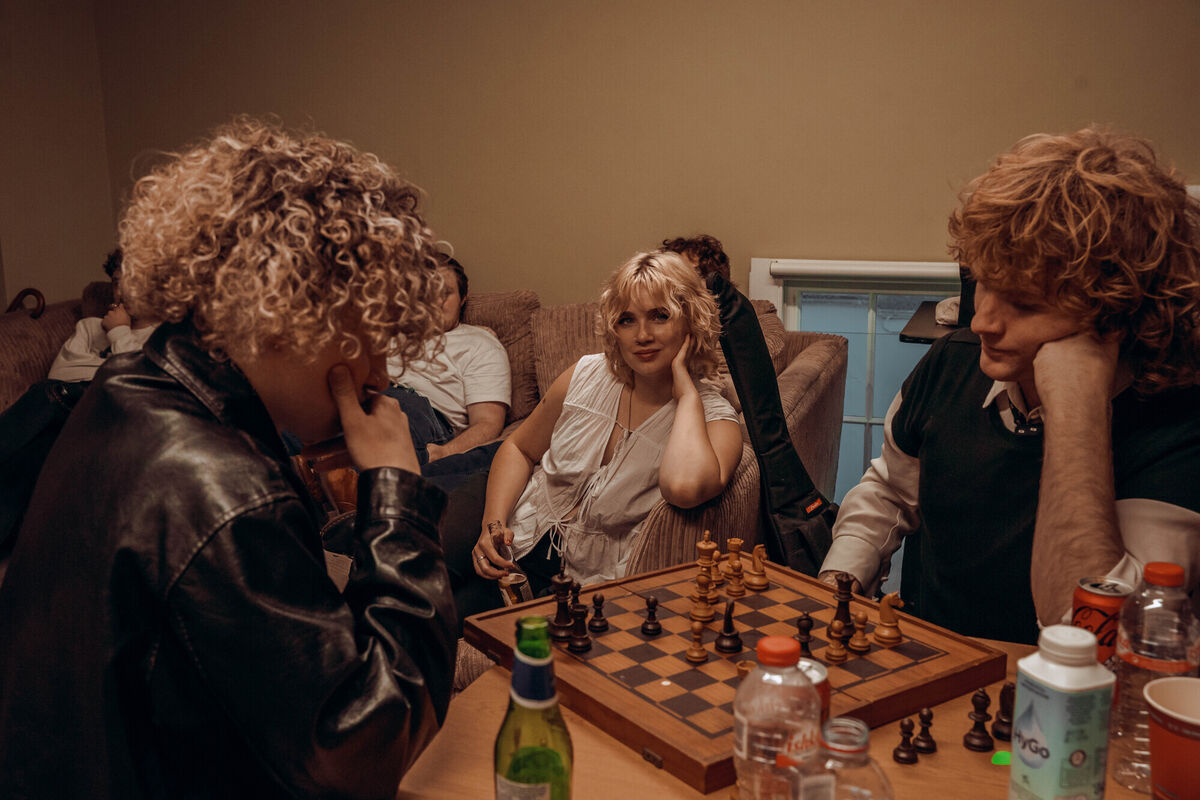
“We've gone into it with the authenticity that we go into everything with,” says I Dreamed I Dream drummer and vocalist Julie Landers. “We were aware, when we were putting together the set, we don't have bigger slower numbers. Like, it's quite a dynamic, fast-moving thing, which is exciting as well, to have the more high-octane stuff going on.”
“Onstage, no, we were just going to do what we normally do, and just do it, however we're feeling right now,” says Love Buzz bassist and vocalist Aidan Lynch after his band’s set. “I didn't really clock the cameras at all, but for the interview that we did earlier on, I definitely 'felt' the camera on me.”
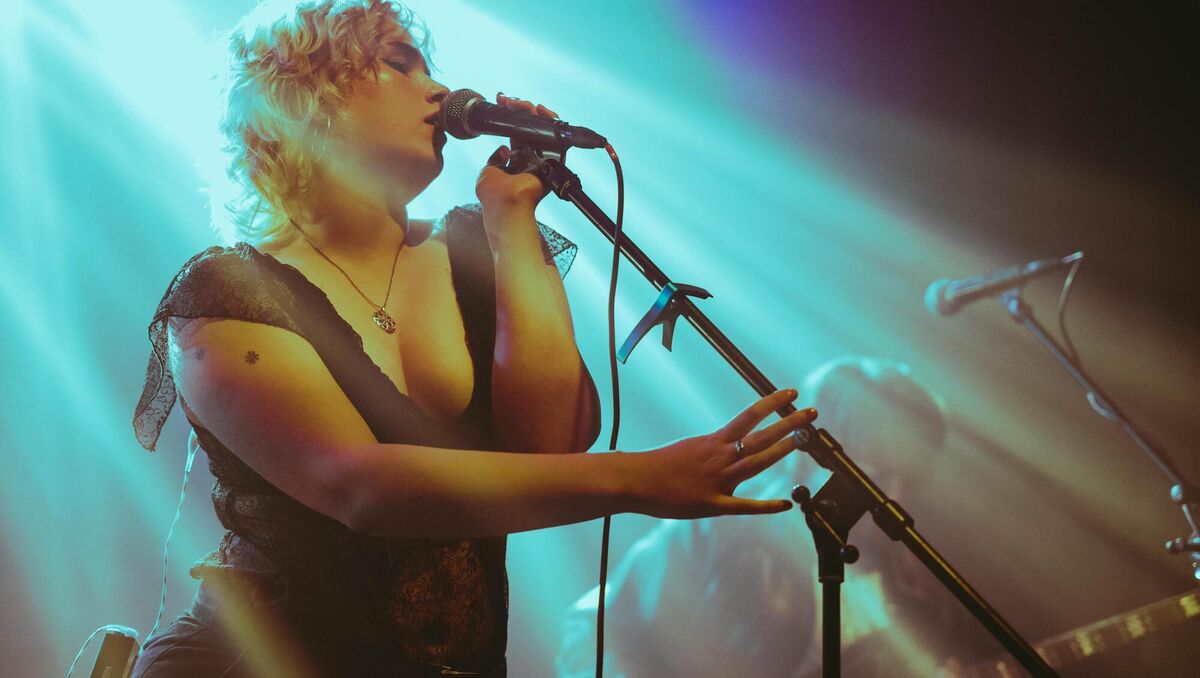
“I wasn't trying to look in a camera. At one point I walked towards one, so that hopefully gets in,” laughs Iona after Cliffords’ set. “I completely forgot they were there. I was looking at the crowd, and looking at so many of the faces. It's so nice that we have crowds now, that we don't know them personally, but we know their faces.
“It's so lovely to see them there, and see them make friends with people; they come in groups, and we start seeing more people coming with them. I think it's such a beautiful thing that I was looking at that, I didn't really look at the camera past my one High School Musical shot.”
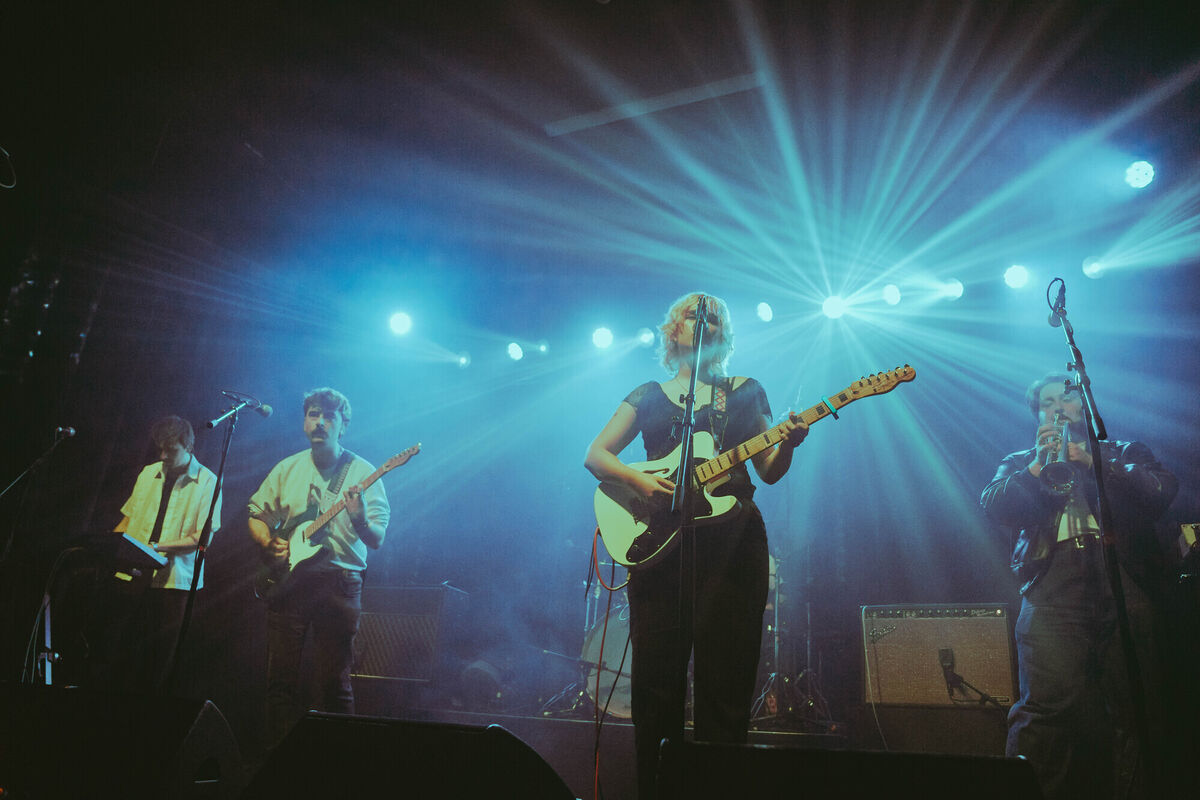
The presence of RTÉ cameras and production at a local gig was more than a small cause for excitement for attendees and musicians alike, with Ireland’s independent music scene currently to the fore amid something of a worldwide moment of pop-culture cool across media, language and fashion.
The age-old debate rages on, however, of local, regional and national media support for homegrown music during prime time and peak hours, as well as the ongoing attitudes and commercial conservatism that still prevails among decision-makers.
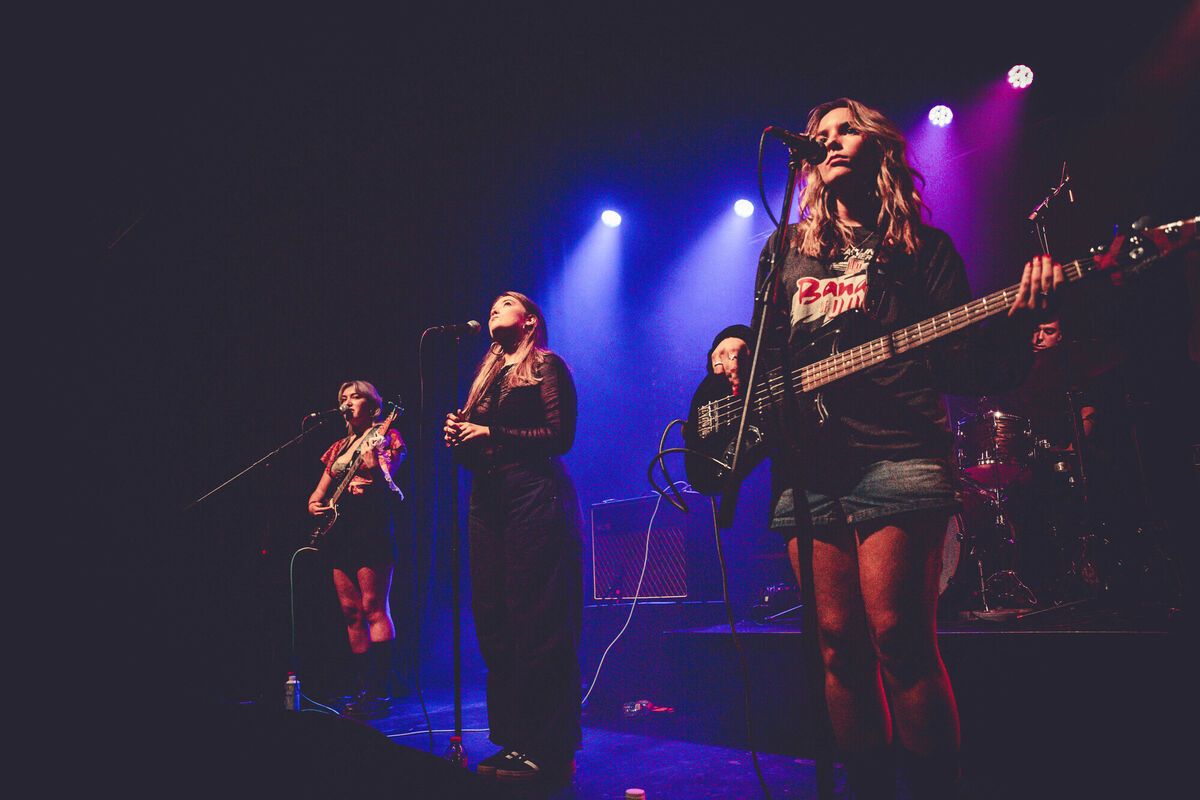
With hitting the road and arguably upping the ante for how grassroots music can be presented for public broadcasters, the question inevitably arises of the needs of young and emerging Irish musicians from the sector, amid a changing landscape of media consumption and funding.
“Just support, really,” muses Cliffords bassist and trumpeter Gavin Dawkins. “I think that the radio should play every Irish act they can, as much as they possibly can. We all love the big acts, but the smaller acts are the ones who really need the support. [We need more of the presenters and producers] that are finding more and more Irish music, playing every single possible Irish act they possibly can, giving them the voice, giving them the opportunity.”
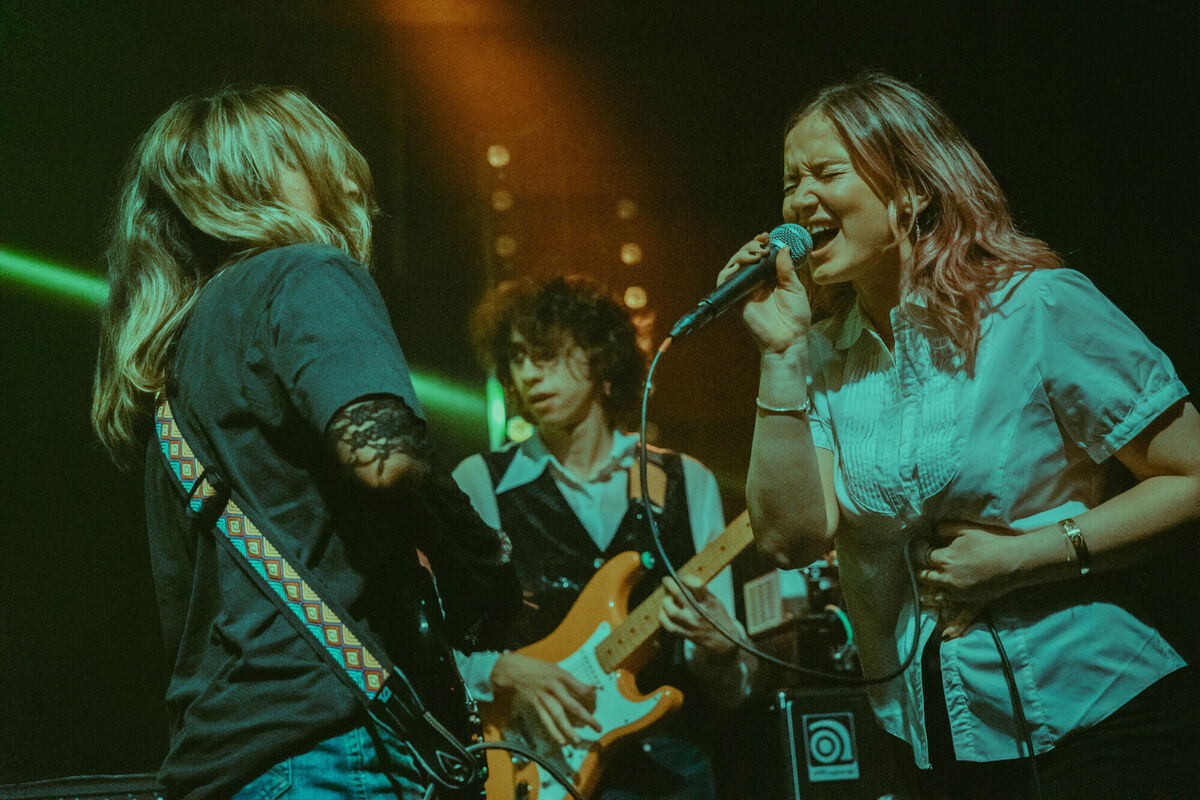
“We all know that independent Irish music has never, ever been in a better, like, a stronger position creatively, than it is now. Cork in particular has always, and is now, still, continuing to produce the best bands in Ireland,” reckons Elle O’Leary Kelleher, guitarist and vocalist in I Dreamed I Dream, speaking in the venue’s green room.
“Unfortunately, we haven't seen Cork bands on the telly, we haven’t heard Cork bands on the radio, especially not from the big mainstream boys, who have the money to be putting these shows on,” she opines, addressing a generational question of national platforming and coverage.
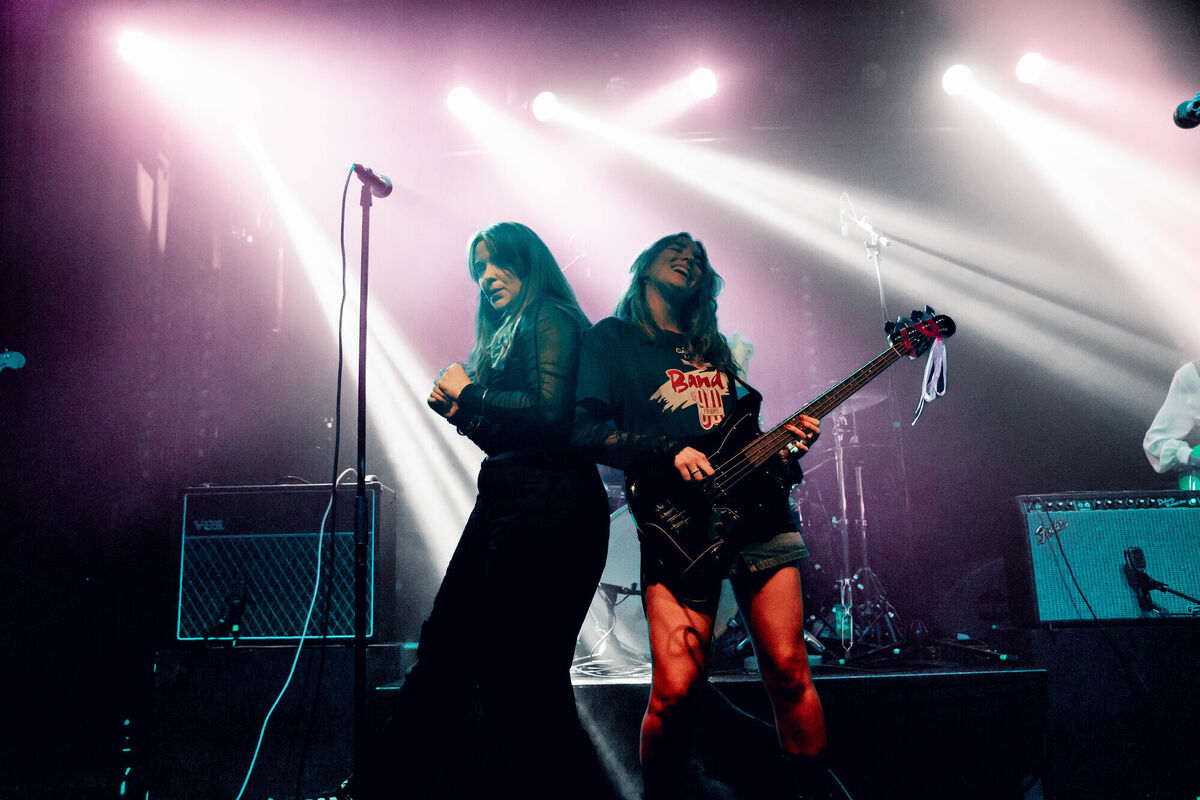
“And when we do, it's kind of archival stuff, Fanning Sessions, which are really great resources, and we're so proud of the background that we get to work against. But like, what's happening now?,” chimes Landers. “Not that we ever set out with a plan beyond making music, but we were never like, 'oh, we're going to be on RTÉ', because we haven't seen it ourselves - so more representation, more stuff like this, is so important.”
“Women in Irish music. Irish radio needs to be playing more women in Irish music in particular,” says Laoise, referencing the findings of ongoing equality campaign Why Not Her? on gender parity on national and regional radio playlisting. “Loads of the percentages are still shocking.”
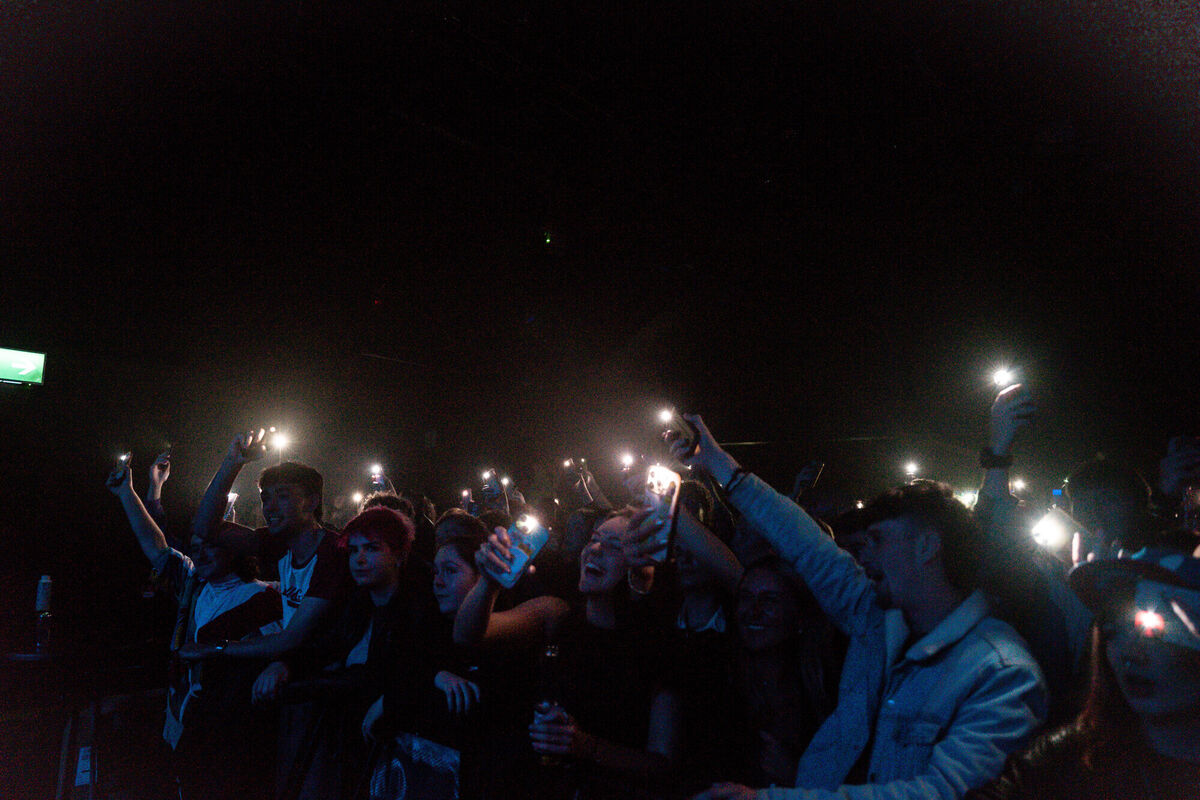
“I'd definitely like to see more eclectic acts, but also… an eclectic approach to how you put these bands forward, as well,” opines Aidan on the question of further coverage. “Like, Cork is a beautiful place - why just be indoors?”
- ’s new season, funded in part by Comisiún na Meán, is set to broadcast across RTÉ platforms in early 2025.
- Catch up on previous RTÉ 2XM audio episodes at https://www.rte.ie/radio/2xm/sessions-from-oblivion/.
- Watch RTÉ Culture video episodes at https://www.youtube.com/@rte.
- See more of Erin Plaice’s photography, and get in touch for commissions and project proposals, at https://www.instagram.com/erinplaice.
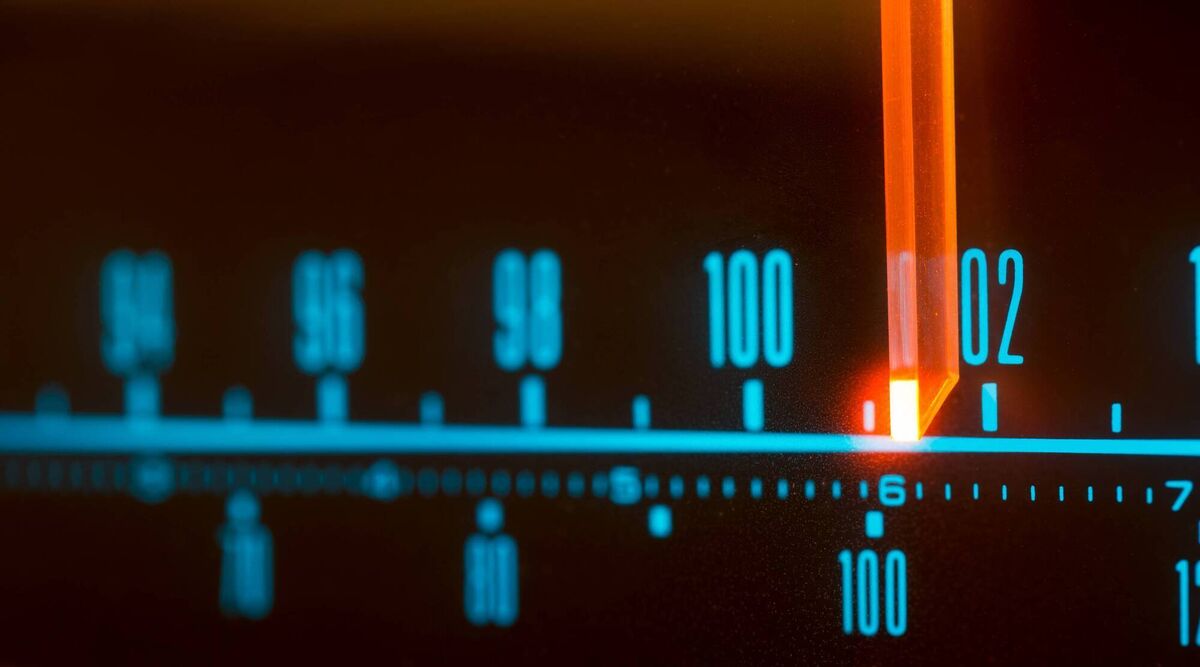
Cormac Donovan O'Neill has been ploughing a singular furrow for new Irish music on UCC’s campus station for a few years now, and the Pebbledash man’s selections of independent, homegrown sounds betray a wide frame of reference and passion, from trad nua to noise-making.
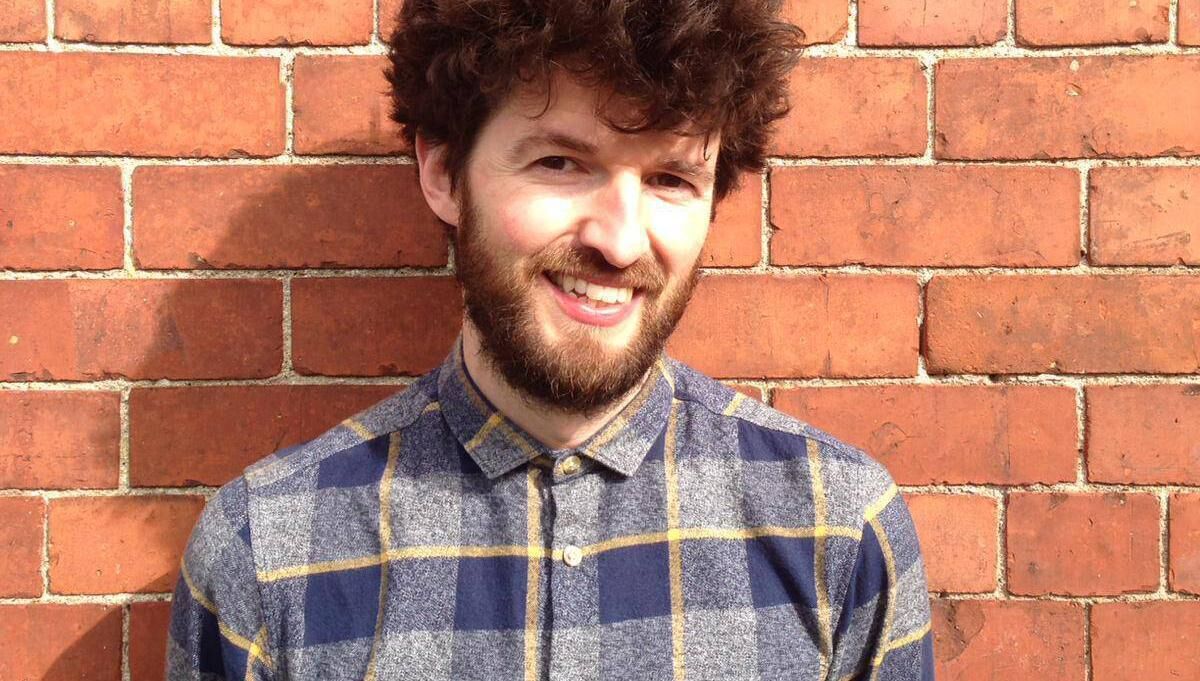
Although 2FM’s alternative sister service is among the digital radio stations due for the eventual chop amid ongoing restructuring at the state broadcaster, Limerickman Peter Curtin continues to keep it lit for the new, the experimental, and the homegrown, with interviews, live sessions and wide-ranging playlists.
The current iteration of 2FM’s enduring tradition of alternative late-night radio, Dan Hegarty oversees a weeknight rundown of indie and alternative sounds, new and archival Studio 8 sessions, artist interviews, and live festival performances from Ireland and all over Europe.
The long-tenured slot formerly known as The Green Room continues a long-term tradition of Sunday night exposure for local and homegrown music, now helmed by DJ Shane Bucks and forming half of an innovative late block with Mia Poland’s LGBT+-focused Out in Cork show.
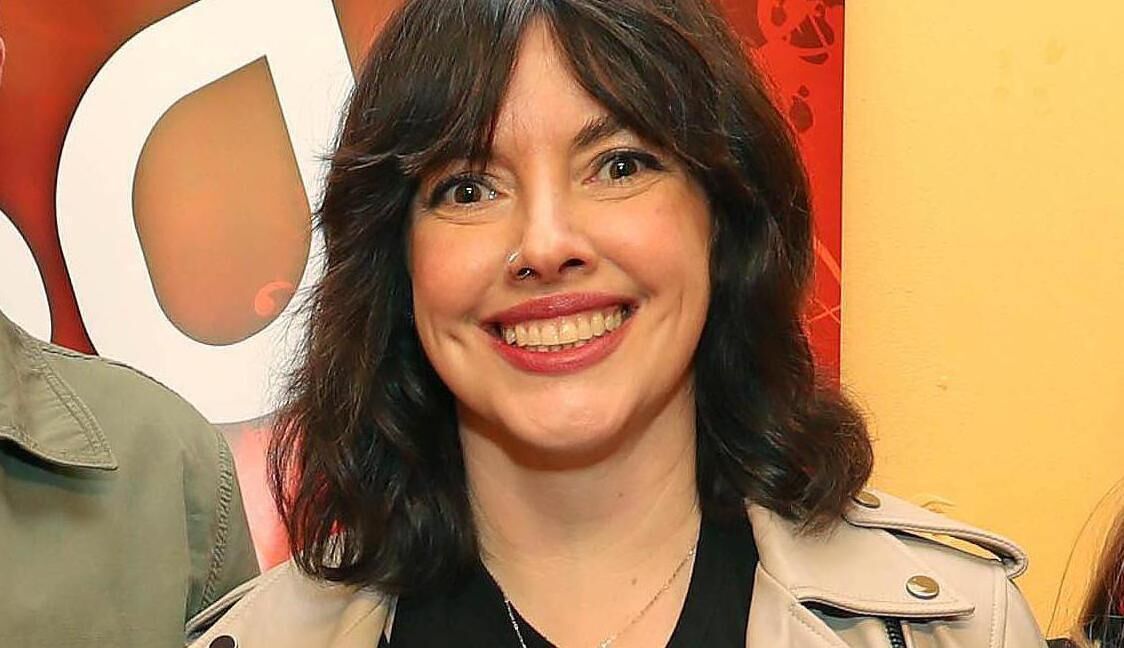
A staple of the Bishopstown station’s lineup since its very beginning as a youth-oriented pop service, Green on Red’s longevity is down to a selection of knowledgeable presenters and their passion for homegrown tunes of all genres – a mantle currently occupied by longtime Cork culture publicist and voice-actor Mags Blackburn.
